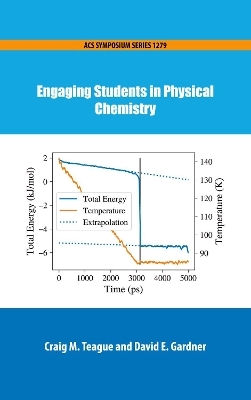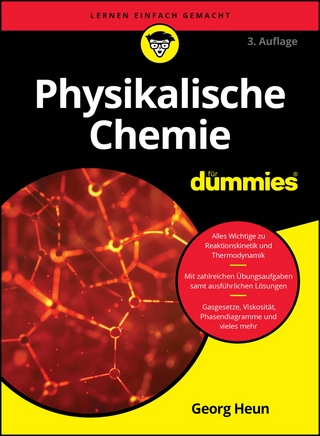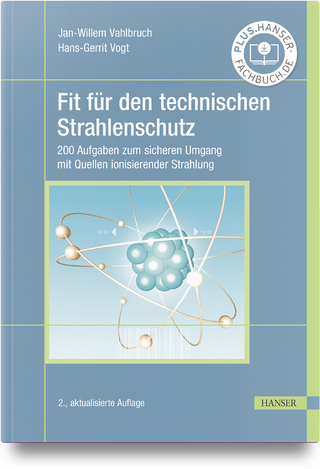
Engaging Students in Physical Chemistry
Oxford University Press Inc (Verlag)
978-0-8412-3288-4 (ISBN)
- Keine Verlagsinformationen verfügbar
- Artikel merken
the country and represent schools of all sizes. From both classical and statistical thermodynamics to kinetics and quantum mechanics, from computational simulations to spectroscopy and chemical education, the authors present ideas from a wide cross-section of physical chemistry. there is not a single,
one-size-fits-all approach to engaging students in physical chemistry. This book reflects the diversity of physical chemistry experiences of the authors themselves. Some chapters provide suggestions to increase engagement by providing new, intriguing contexts such as protein interactions and surface chemistry through which to teach traditional physical chemistry concepts. Other chapters focus on pedagogy, presenting ideas on how to increase the active involvement of students in their own
learning or how to help students memorize difficult thermodynamic equations. Still other chapters challenge traditional instructional notions with ideas such as using flipped classrooms and incorporating a graphic novel. In general, we organized the chapters according to these broad categories, although
some chapters bridge categories. In short, this book is not so much a step-by-step instruction manual as it is a resource for ideas, guidance, and inspiration for improving your own physical chemistry curriculum for the purpose of engaging students.
Craig M. Teague obtained a B.S. from Missouri State University with a double major in physics and chemistry. He obtained a Ph.D. in chemistry from the University of Illinois at Urbana-Champaign. Since 2003, he has taught at Cornell College in Mount Vernon, Iowa. He is now a full professor and department chair. He has served as visiting faculty at Oak Ridge National Laboratory on multiple occasions. David E. Gardner obtained a B.S. in physics with a minor in chemistry from Carnegie Mellon University. He pursued chemistry graduate work at Purdue University where he earned a M.S. in physical chemistry working on combinatorial methods for hydrothermal zeolite synthesis. His Ph.D. in chemical education examined the difficulties students encounter while learning quantum mechanics. Since 2002, he has taught at Lander University in Greenwood, South Carolina.
Preface
1. Strategies for Engagement: Enhancing Your Teaching
David E. Gardner
2. Measuring Novel Protein-Protein Binding with Surface Plasmon Resonance in the Physical Chemistry Lab
Benjamin J. McFarland
3. Bridging the Microscopic and Macroscopic in Thermodynamics with Molecular Dynamics Simulations: Lab Exercises for Undergraduate Physical Chemistry
Matthew C. Zwier
4. Partition Functions and Statistical Thermodynamics: Spreadsheet Activities To Promote Connections in Physical Chemistry
Craig M. Teague and Truman H. Jordan
5. Engaging Students in the Physical Chemistry Laboratory by Creating a Non-Traditional Research Experience through an Independent Project
Andrea N. Giordano, Michael Walzak, and Kristina M. Lantzky
6. Incorporating Experimental Design into a Stand-Alone Undergraduate Physical Chemistry Laboratory Course
Molly B. Wilker
7. Using a Context Rich Pedagogy To Teach Kinetics, Quantum Mechanics, and Spectroscopy
Elaine M. Marzluff and Mary A. Crawford
8. Designing an Active Learning Physical Chemistry Course Using Best Practices
Jodye I. Selco
9. Mnemonic Devices for Thermodynamic Relationships
Ray C. Dudek
10. The Impact of Guided Inquiry Materials on Student Representational Level Understanding of Thermodynamics
Courtney Stanford, Alena Moon, Marcy Towns, and Renée Cole
11. Reflections on the Effect of the Flipped Classroom on Students' Difficulties with Homework in Physical Chemistry
Lisa M. Goss
12. Engaging Students in Quantum Theory Using a Graphic Novel about Niels Bohr
Allison M. Fleshman
Editors' Biographies
Indexes
| Erscheinungsdatum | 10.12.2018 |
|---|---|
| Reihe/Serie | ACS Symposium Series |
| Zusatzinfo | 48 |
| Verlagsort | New York |
| Sprache | englisch |
| Maße | 160 x 236 mm |
| Gewicht | 512 g |
| Themenwelt | Naturwissenschaften ► Chemie ► Physikalische Chemie |
| ISBN-10 | 0-8412-3288-1 / 0841232881 |
| ISBN-13 | 978-0-8412-3288-4 / 9780841232884 |
| Zustand | Neuware |
| Informationen gemäß Produktsicherheitsverordnung (GPSR) | |
| Haben Sie eine Frage zum Produkt? |
aus dem Bereich


